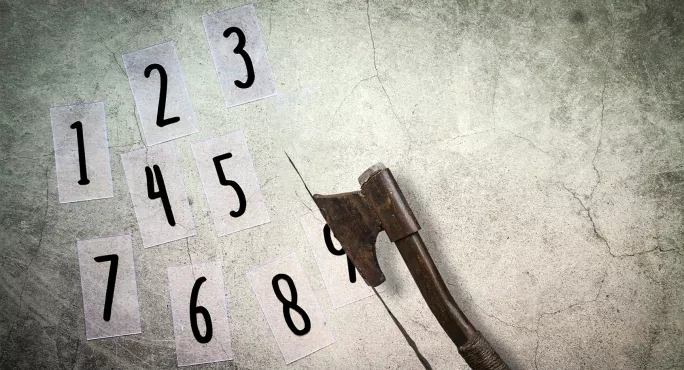Call for Ofsted school grades to be axed ‘immediately’

Ofsted’s overall graded judgements of schools should be scrapped and the watchdog should tell schools what year they are due to be inspected in, according to a new report by headteachers’ leaders.
The Association of School and College Leaders has warned that a “punitive inspection” system is adding to the teacher recruitment and retention crisis in schools and putting pressure on leaders.
In a new discussion paper published today, the union suggests a series of immediate and longer-term reforms to improve the inspection system.
- Controversy: Ofsted faces pressure to publish inspection aides
- Inspection: Heads warn Ofsted complaints review won’t go far enough
- Revealed: How Ofsted focus in inspections has changed
It calls on Ofsted to publish its inspection training materials, and for the inspectorate to review how pupil voice is used as evidence in inspection reports, following concerns raised by headteachers.
ASCL also suggests that Ofsted should update its inspection handbook and its reporting to better reflect the role of multi-academy trusts in school effectiveness.
As well as listing these immediate proposals, the school leaders’ union’s discussion paper also makes 10 suggestions for future inspection reform, with the current chief inspector, Amanda Spielman, entering her final year in post.
Ofsted ‘should end four-grade school judgements’
The report’s headline proposal is that the overall four-grade inspection judgement for schools should be dropped immediately.
ASCL general secretary Geoff Barton said: “Graded judgements are a woefully blunt tool with which to measure performance, failing to account for the different circumstances under which schools operate.”
He warned that negative judgements “come with huge stigma attached” and create a vicious circle that makes improvement more difficult.
“We know from speaking to members that the punitive inspection system is contributing to the recruitment and retention crisis in education by adding to the pressure school leaders are under, and by making it more difficult to recruit high-quality staff in the schools which most need them,” Mr Barton added.
One of the report’s recommendations for longer-term change is to get rid of the four distinct graded judgements that currently feature in Ofsted inspection reports for leadership and management, quality of education, behaviour and attitudes and personal development.
The report suggests these judgements be replaced with a narrative description of a school’s strengths and weaknesses in different areas.
It says that removing all graded judgements from school reports “has the potential to end the unhelpful and misleading practice of reducing a school or college’s performance in key areas to a single word or phrase”.
ASCL’s immediate recommendation for Ofsted to publish its training materials follows controversy over the watchdog’s refusal to share inspection aids with all schools last year. The materials were then circulated widely on social media.
Both ASCL and the Confederation of School Trusts called on the watchdog to provide all schools with access to the subject-specific aide memoires it has produced to support inspectors.
Ofsted declined to do so because it said the materials were part of inspectors’ training and “lack the necessary context for a wider audience”.
In a letter to Mr Barton, Ms Spielman also suggested that publishing them could cause “increased and unnecessary workload” for teachers
In ASCL’s new report, it says: “Ofsted should publish its latest aide memoires on its website with immediate effect, alongside recordings of the Ofsted Inspector training from which they were distilled.”
The report says that the aide memoires go beyond the published Education Inspection Framework and handbooks. It adds: “It is not right to hold schools and colleges accountable against a ‘meta’ or unpublished framework, as we believe these aide memoires constitute.”
The longer-term proposals include a suggestion that Ofsted inspections should not inspect safeguarding.
Instead ASCL suggests that schools and colleges should have annual light-touch safeguarding and health and safety audits, removed from the cycle of inspection.
And it calls for Ofsted to be able to formally inspect MATs, something that the watchdog has called for repeatedly.
.
Julie McCulloch, the union’s director of policy, said: “Although these recommendations do not yet represent formal ASCL policy, the paper has been produced following consultation with ASCL Council - our policymaking body.
“Our hope is it will be a useful contribution to the dialogue for policymaking now and in the future and we would welcome feedback from across the sector.”
ASCL said it will be actively seeking further views on the future of inspection throughout 2023.
Register with Tes and you can read two free articles every month plus you'll have access to our range of award-winning newsletters.
Keep reading with our special offer!
You’ve reached your limit of free articles this month.
- Unlimited access to all Tes magazine content
- Save your favourite articles and gift them to your colleagues
- Exclusive subscriber-only stories
- Over 200,000 archived articles
- Unlimited access to all Tes magazine content
- Save your favourite articles and gift them to your colleagues
- Exclusive subscriber-only stories
- Over 200,000 archived articles
topics in this article



